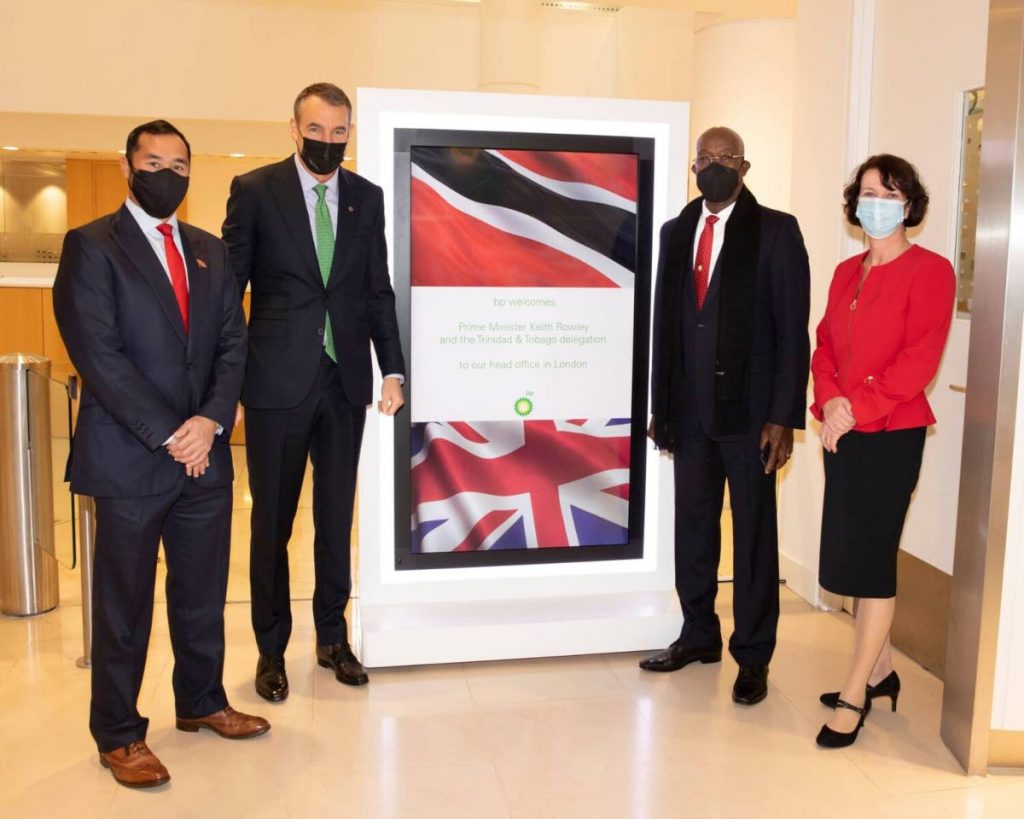Re-engineer energy

The Prime Minister and Energy Minister appear to have used their time abroad after the COP26 conference wisely, meeting with major energy multinationals BP and Shell.
These were probably conversations of confirmation, since these major extractors announced years ago that they will be shifting their emphasis to renewable energy sources.
All the signals from this year's climate-change conference would have reinforced that shift, as energy producers hear from concerned nations about the effect of the greenhouse gases generated by burning fossil fuels.
That news shouldn't have come as a surprise to our small state, which will feel a deleterious impact from the acidification of the oceans, rising sea levels and changing weather patterns.
The TT government must commit far more emphatically to cleaner-burning fuels, including reducing diesel use for all but the most necessary applications and putting its development emphasis behind renewable sources of energy.
Government lethargy in embracing cleaner energy production has been supported by cheap power in TT. That's led to oversupply and careless use of generated power. In 2018, former public utilities minister Robert Le Hunte noted that the demand for electricity in the country is 1,200 megawatts, but supply is 1,900 megawatts.
That should give state planners some elbow room in replacing less efficient sources with cleaner energy production.
In June 2019, it was announced that TT had access to US$3 million from the International Renewable Energy Agency's Caribbean Renewable Energy Fund. The Energy Ministry issued a request for proposals for solar and wind projects to 37 organisations. That funding was earmarked to create a solar installation for electric-vehicle charging at the Queen's Park Savannah.
But that plan only makes sense if growing use of electric vehicles had been located anywhere in the government’s agenda.
TT has already missed its target for generating ten per cent of its electricity from renewable energy by 2021. Ninety-nine per cent of local electricity is generated by natural gas.
This country is currently ranked 98th in the world for environmental sustainability by the World Energy Council. The World Economic Forum has TT pegged as 85th on the same benchmark, but at 95th for transition readiness.
Making a change to energy sustainability will need decisive leadership from the top.
But the kind of nimble thinking required for change continues to come from multinationals, not nationals. Lightsource BP is committed to building two solar parks in Trinidad at Brechin Castle and Orange Grove.
It's actually somewhat embarrassing that an extractive-industries company is putting a tangible emphasis on renewable energy while TT as a country is still talking about LED bulbs, and offered no plan that meaningfully addresses the mandatory 30 per cent reduction in emissions by 2030.
This country punches above its weight in terms of contributing to global warming; surely it has an equal responsibility to compensate for that.


Comments
"Re-engineer energy"